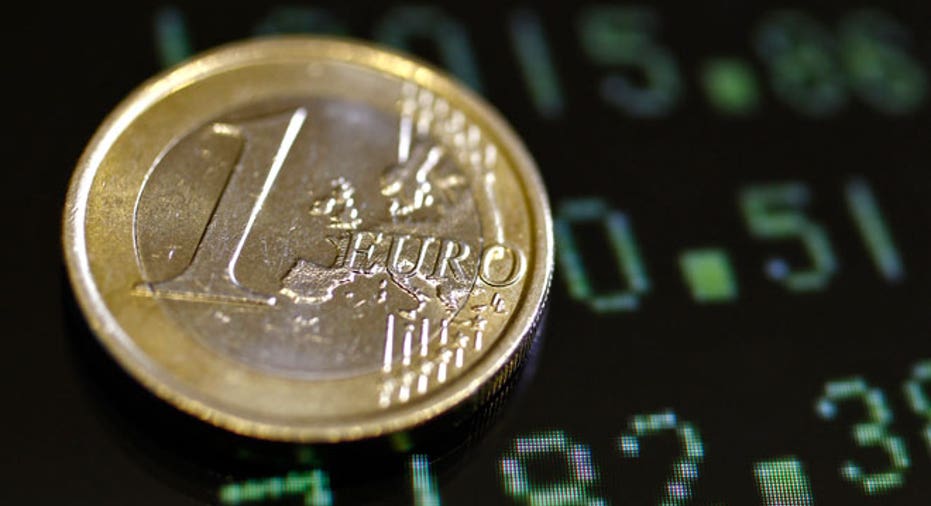Greek Concerns Pressure Euro

The euro closed in on a three-month low and safe-haven German bonds rose on Wednesday as political disarray in Greece and the rising costs of fixing Spain's banks fueled fears the euro zone's debt crisis was worsening.
The concerns over Europe added to worries about the impact of softer growth in the U.S. on the global economic outlook, causing a broad retreat from risky assets with world shares falling, oil prices down for a sixth straight session and the commodity-linked Australian dollar hitting new lows.
The market's immediate attention was on Athens where efforts to form a government were expected to fail, putting its ability to meet the terms of its bailout deal in doubt and raising the possibility of Greece being forced out of the euro.
"The sensitivity to political developments in Greece is largely a reflection that the probability of Greece exiting the euro, posing a significant threat to global financial stability, has increased," Lee Hardman, currency economist at Bank of Tokyo-Mitsubishi UFJ said.
The euro fell 0.3 percent to $1.2977, closing in on a three-month low near $1.2955 touched on Monday below the $1.30 to $1.35 range it has traded within for most of the year.
"We still think the euro will head lower with $1.2950 the level to break in the near-term," said Lauren Rosborough, senior FX strategist at Societe Generale, who have a medium-term target of $1.2500.
Global shares as measured by MSCI world equity index fell 0.4 percent to 316.40 points, which was nears its low for the year after resource and energy shares were hard hit in Asian trading.
SPAIN BANK DRAIN
The FTSE Eurofirst index of top European shares was being dragged lower by falls in bank stocks, which are most exposed to Europe's debt problems and were hit by the problems in the Spanish banking sector in particular.
Financial sources told Reuters on Tuesday the Spanish government would demand its banks raise around a further 35 billion euros ($45.48 billion) in provisions against loans in their property portfolios.
Spanish lender Bankia, which will see an injection of public cash, led the falls in the sector dropping 5.7 percent, while Santander was down 3.8 percent and BBVA slipped 3.6 percent.
Concerns over Spain's banking system pushed Spanish 10-year government bond yields up 16 basis points to 6.03 percent, and above the 6 percent mark that could see the rise in yields accelerate if the break is sustained.
The cost of insuring Spain's debt against default also rose 19 basis points to 512 basis points.
The search for safety enabled the German government to sell four billion euros ($5.2 billion) of new five-year bonds at a record low coupon of 0.5 percent, and sent the German Bund future to an all-time high of 142.75.
German asset markets had earlier received a boost from news that exports and imports rose to record monthly levels in March, in another signal that Europe's largest economy is fending off the euro zone debt crisis far better than others.
In the oil market Brent crude slipped towards $112 on Wednesday, on track for its longest losing streak in almost two years. U.S. crude was at $96.35, down 66 cents.
The commodity-linked Australian dollar was down 0.5 percent to $1.0066, having touched a low of $1.0052 at one point, the lowest level in more than four months. The New Zealand dollar also touched a 4-month low at $0.7842.



















